All products featured are independently chosen by us. However, SoundGuys may receive a commission on orders placed through its retail links. See our ethics statement.
Apple AirPods Pro (1st Gen) vs Apple AirPods (3rd Gen)
July 10, 2024

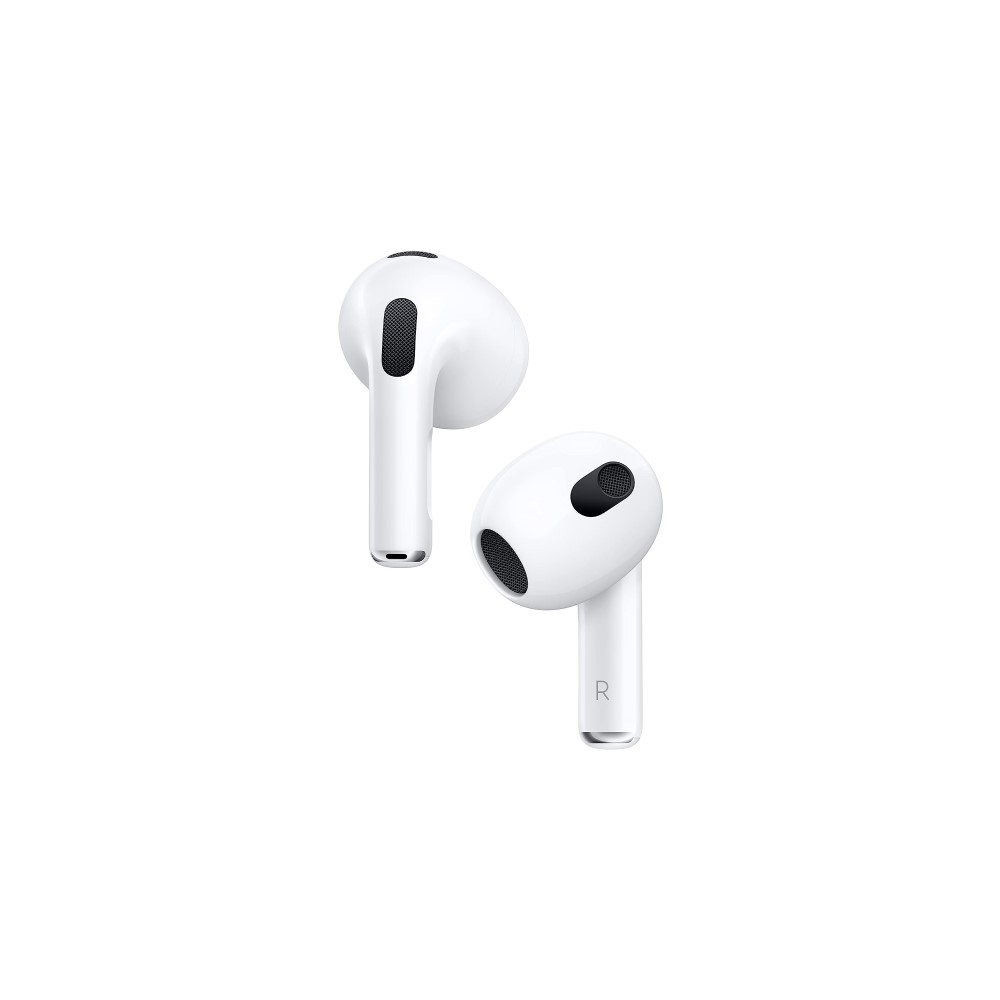
Apple has put out a lot of AirPods over the years. While the first generation of AirPods Pro was the go-to item compared to the last two generations of the standard issue, how do they stack up with the current AirPods? The Apple AirPods (3rd generation) come with a slightly different shape and a couple of new features. Here’s how they compare to Apple’s first pair of true wireless earbuds to seal the ears.
What's new?
- This post was updated on July 10, 2024, to ensure the timeliness of the information within.
- The original AirPods Pro has been replaced by the AirPods Pro (2nd Gen), although we expect the AirPods Pro 3 to be released in the next couple of years. We will likely also see the Apple AirPods 4 release around the same time.
Does the AirPods Pro fit more securely than the Apple AirPods (3rd generation)?
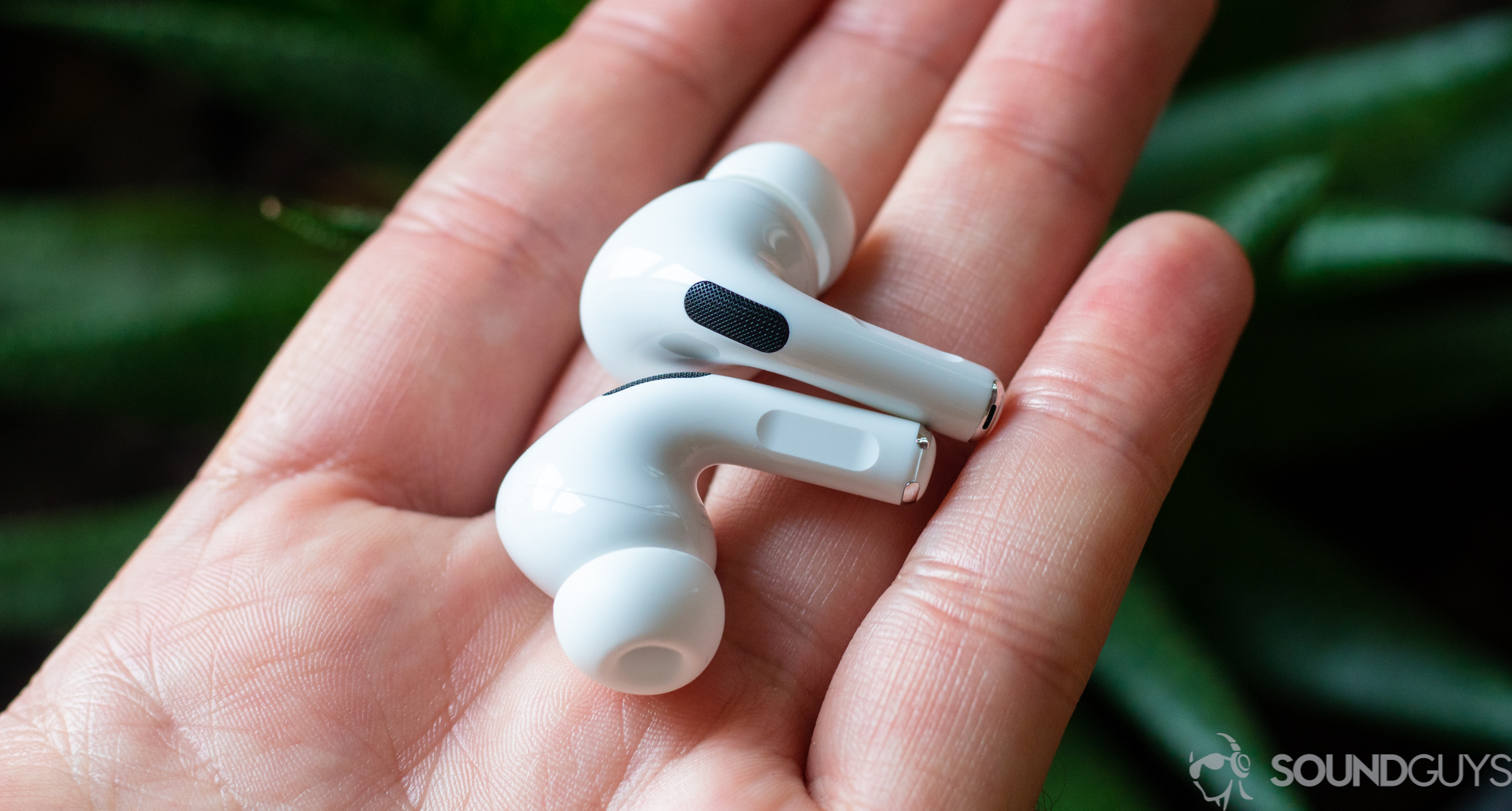
When the Apple AirPods Pro came out, the benefits over the AirPods (2nd generation) were obvious from the start. Sure, both products are well-made, in the sense that they’re sturdily constructed, with touch controls that work well and strong magnets in the case to keep the charging connection secure. However, once the sheen of Apple’s industrial design wears off, the AirPods Pro’s vastly superior audio performance makes it the obvious winner. That’s still true with the Apple AirPods (3rd generation).
This time around, Apple changed the shape of its standard model true wireless earbuds, apparently so that they fit more comfortably in more ears. The AirPods (3rd generation) feature a rounder shape with a new speaker array and software to lessen the amount of bass loss from the unsealed fit.
However, even if these new earbuds are more comfortable than before, no unsealed design on the market beats the isolation and security that flexible silicone ear tips afford. The Apple AirPods Pro fits better in more ears, and it features all the same controls as the AirPods (3rd generation). Not to mention, the Pro model includes active noise canceling (ANC), which further widens the isolation gap.
Does the Apple AirPods (3rd generation) have different features from the Apple AirPods Pro?
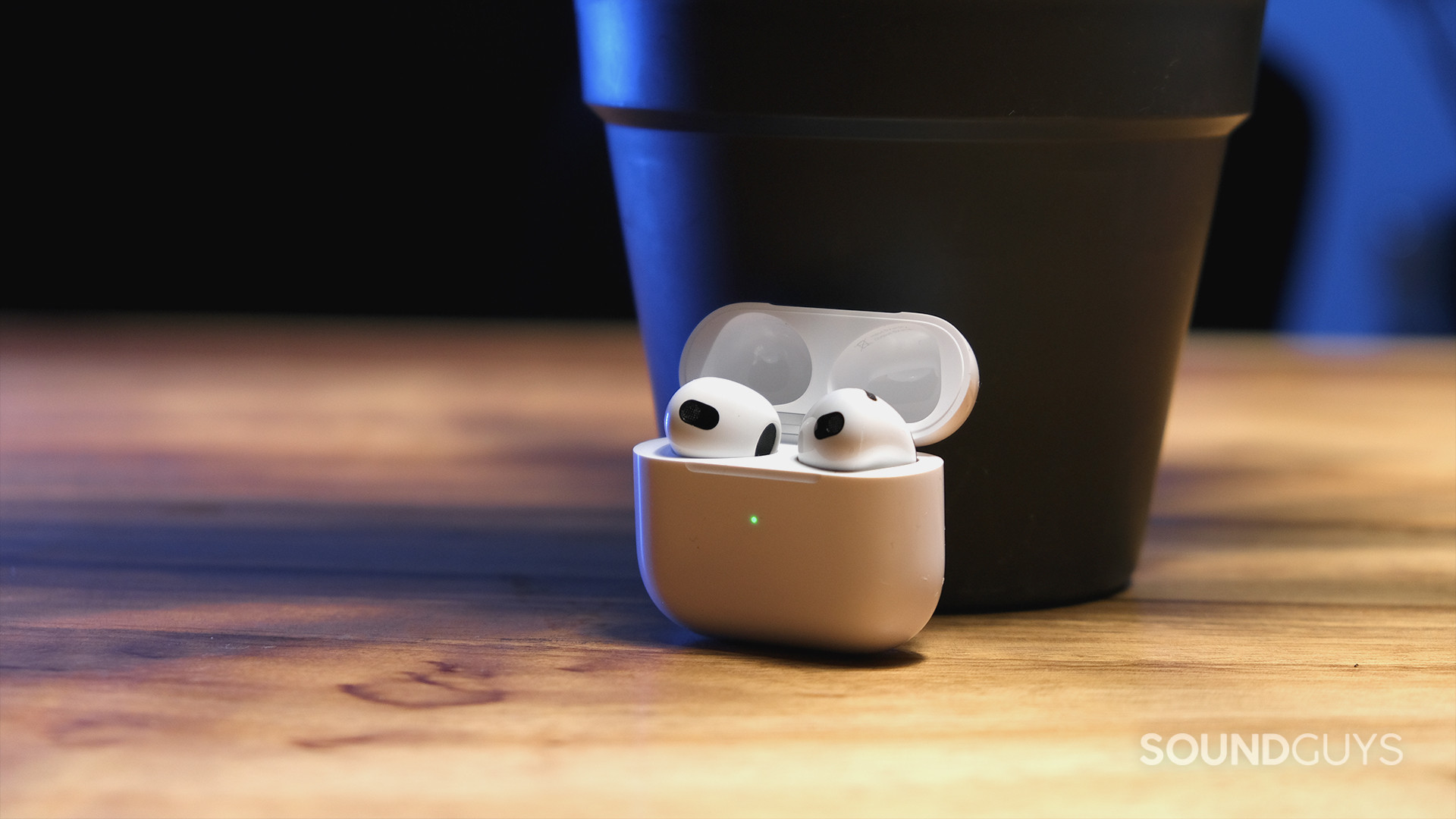
The Apple AirPods (3rd generation) marks the next Apple audio product to include the company’s Spatial Audio technology, and its launch is accompanied by iOS 15.1, which revamps the feature a little bit. Now, your iOS device can try to spatialize audio that isn’t specifically mixed for Dolby Atmos, and it works pretty well. The spatialized audio doesn’t sound as good as anything mixed for surround sound by an engineer, but it’s a fun new way to listen to music that’s only ever been mixed in mono, at least. Spatial audio launched with the AirPods Pro, and since the new version is tied to an iOS update, it works just the same on Apple’s noise canceling true wireless earbuds.
AirPods (3rd generation) also brings the same stemmed control design as the AirPods Pro. Each earbud features an indentation on the stem, which can recognize a series of taps and squeezes. You can also customize what does what in the iOS settings app, but here’s what the default controls are:
| Action (stems) | Either earbud |
|---|---|
One tap | Play/pause |
Two taps | Skip forward |
Three taps | Previous track |
Press and hold | Siri |
"Hey Siri" | Change volume, request directions, playback control, receive messages, and more |
The AirPods Pro features a couple of extra controls for turning on ANC and transparency mode, but it’s otherwise the same deal. Have a look for yourself:
| INPUT (stems) | ACTION |
|---|---|
One press | Play/pause/answer call |
Two presses | Next track |
Three presses | Previous track |
Press and hold | Toggle ANC/Adaptive Transparency modes |
"Hey Siri" | Change volume, request directions, playback control, receive messages, and more |
The AirPods (3rd generation) case charges via Lightning cable, but it also debuted with Apple’s reintroduction of MagSafe charging across many of its devices. That translates to a new Qi wireless charging pad for all compatible mobile devices, which features an array of magnets to lock the case in place while charging. However, now any AirPods Pro purchased after the release of the AirPods (3rd generation) also supports MagSafe and charging via Lightning — so it’s not really a point of differentiation.
If you’re the kind of person who loses earphones on the couch a whole bunch, you will be happy to note that Apple’s Find My AirPods feature is enabled with both the AirPods Pro and the AirPods (3rd generation). Just be sure not to wait too long to find your earphones, as small batteries tend to run out relatively quickly.
The Apple AirPods (3rd generation) and Apple AirPods Pro feature virtually identical software experiences
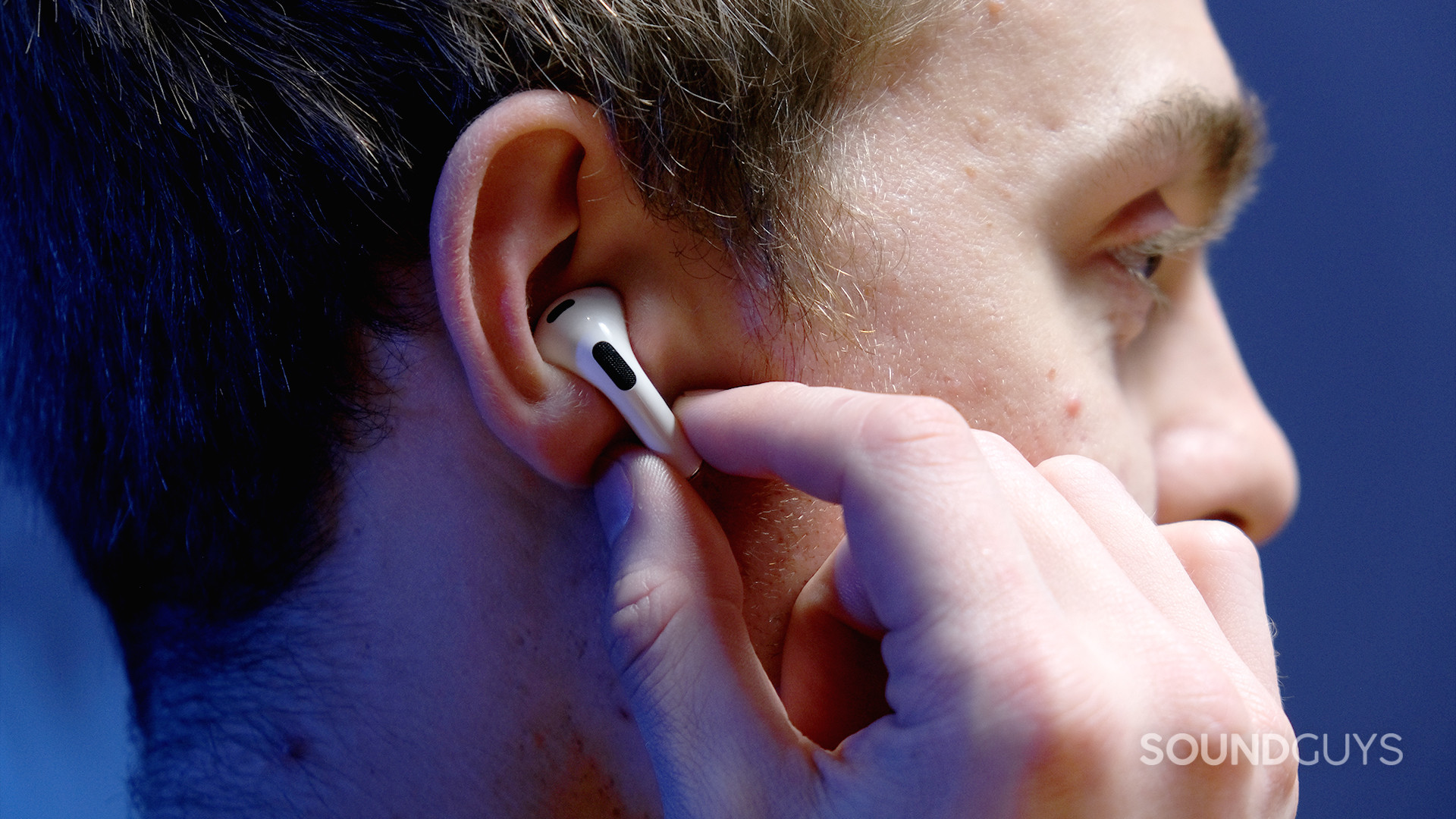
The iOS and iPadOS Settings apps are where you control all the settings for both the AirPods (3rd generation) and AirPods Pro. This means only Apple users can access things like firmware updates, hands-free Siri, and Spatial Audio. However, if you have an Apple device, the experience is basically the same with the AirPods (3rd generation) and the AirPods Pro. Just go into the Bluetooth settings, and hit the “i” next to your device, and then you can name your AirPods, change what happens when you press on the stems, and toggle automatic ear detection, which pauses playback when you take an earbud out. You can also set which AirPods earbud is the default microphone, in case you only want to wear one and still take phone calls.
The AirPods Pro also lets you change the noise canceling controls to either switch between ANC on and off or transparency mode. You can only have two of those three options selected at once, so it comes down to whether you want to be switching between regular listening and ANC or Transparency or just between ANC and Transparency.
How do you connect the Apple AirPods Pro and Apple AirPods (3rd generation)?
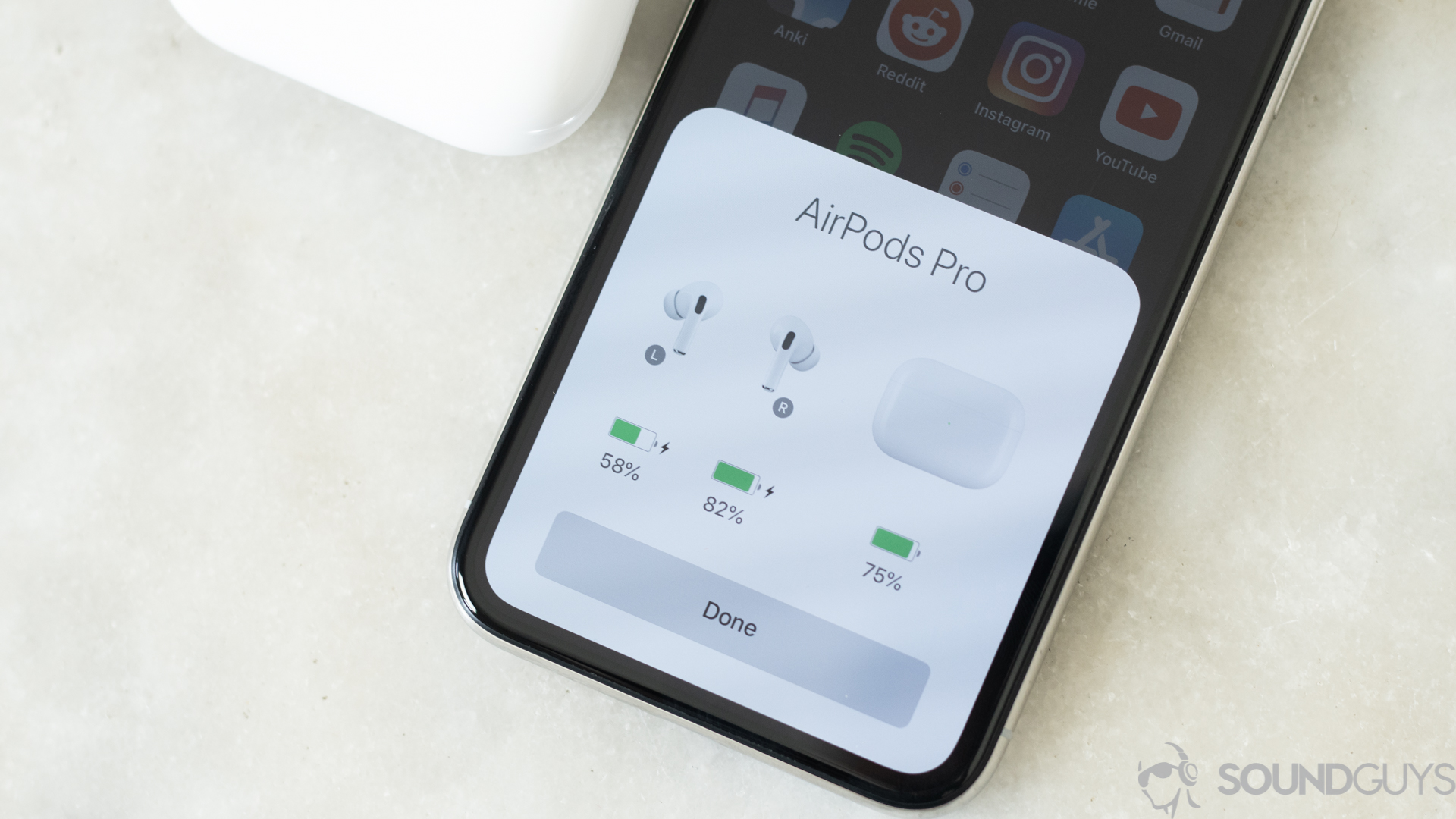
Much like every other device with an H1 chip, connecting to iOS is a cinch with both the Apple AirPods Pro and Apple AirPods (3rd generation). Once you open the case near your phone, a pop-up card should appear on your iPhone screen, allowing for a quick connection. And because these are really just Apple-oriented earbuds, they both just support SBC and AAC Bluetooth codecs. Both pairs of true wireless earbuds use Bluetooth 5.0, so neither will support the LC3 codec in the future — though even if they were to have Bluetooth 5.2, you’d still probably use AAC on Apple devices.
On Android, the experience is far less bespoke. You don’t get access to any software features and have to connect by holding the pairing button on the back of the case and pairing in your device’s Bluetooth menu like you would any other Bluetooth device. You can use the AAC codec, but SBC is likely to be more consistent across non-Apple devices.
How much more noise does the AirPods Pro block out compared to AirPods (3rd generation)?
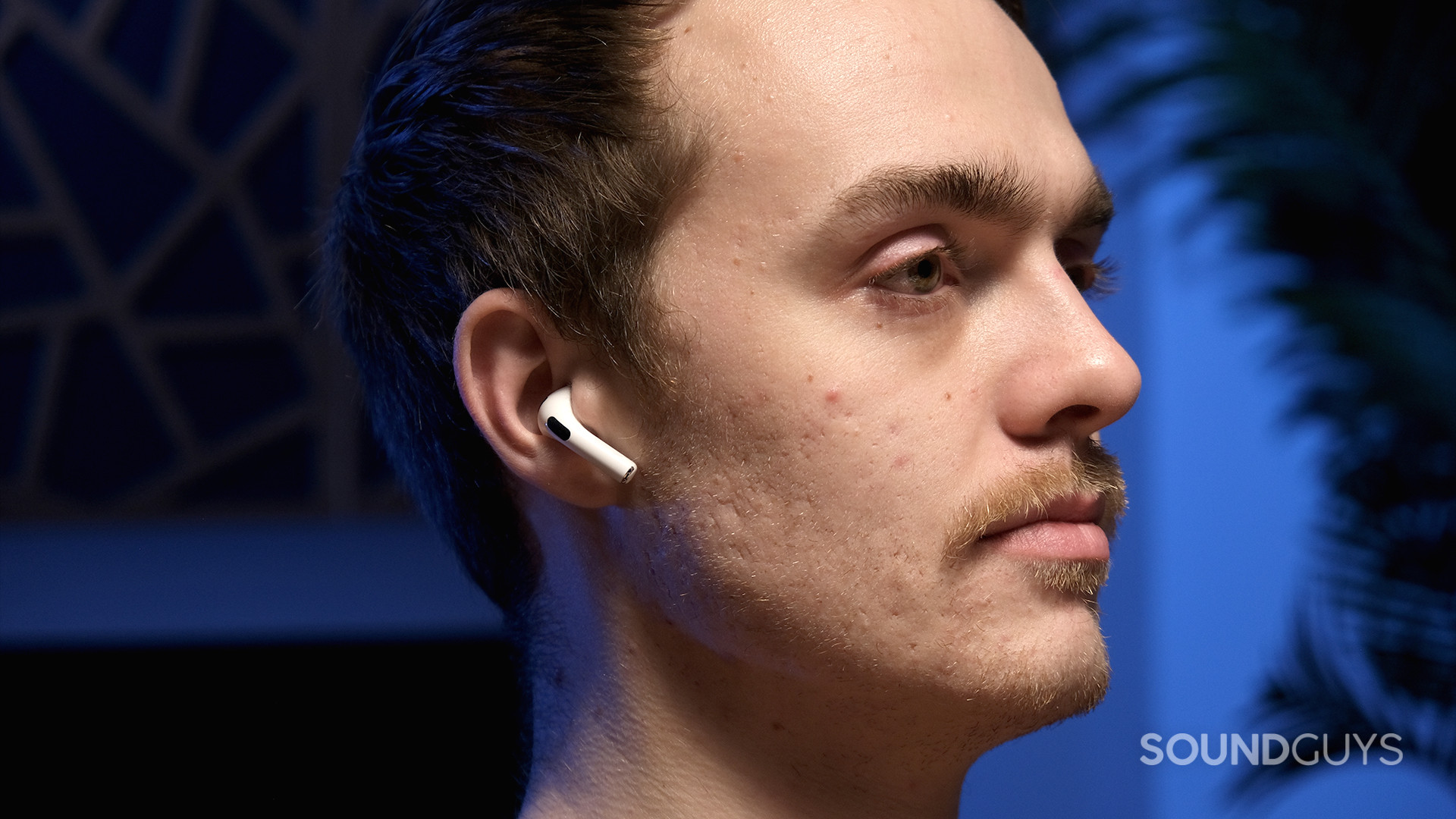
In this kind of article, noise canceling or isolation performance is usually a big point of competition between whatever models we’re comparing. It’s important here, but more to demonstrate that there’s no competition on this front, and that’s intentional.
The Apple AirPods Pro has vastly superior isolation performance. It has ANC, but even if it didn’t, the passive isolation granted from the silicone ear tips is substantial. The Apple AirPods (3rd generation) doesn’t block out much of anything — it doesn’t seal to the ear canal, and it doesn’t feature ANC. It features a new array of speakers to mitigate the loss of audio in an unsealed environment, but that’s no guard against auditory masking. It’s hard to get more straightforward than this, folks.
Does the Apple AirPods (3rd generation) have a better battery than the AirPods Pro?
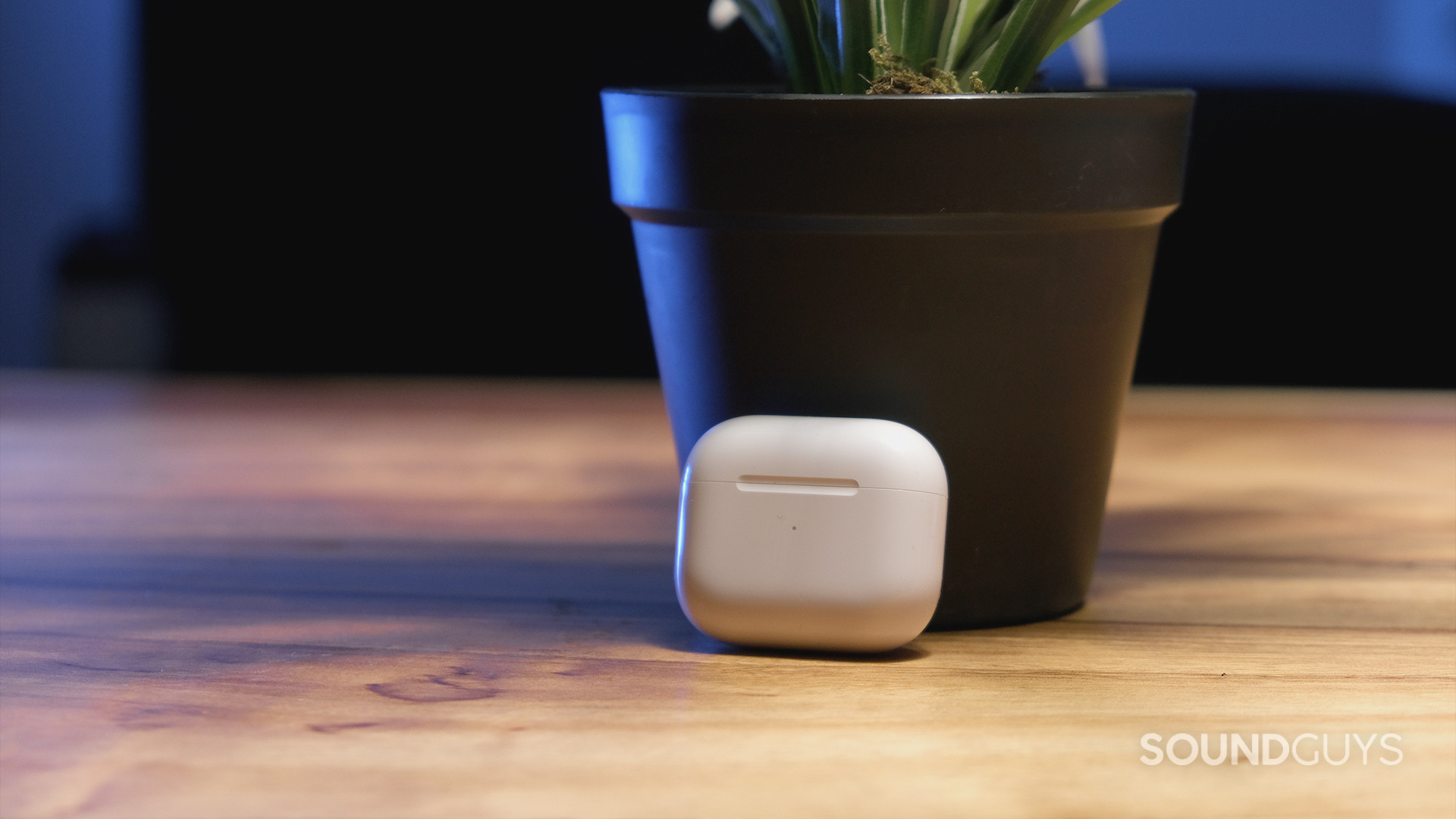
If there’s one place the AirPods (3rd generation) improves on not only against its predecessor but the AirPods Pro as well, it’s battery life. At a consistent output of 75dB(SPL), the new generation of true wireless earbuds lasted 6 hours and 21 minutes on a single charge. That’s a big improvement over the barely 4-hour result of the previous generation AirPods. In comparison, the AirPods Pro lasts 5 hours and 6 minutes under the same conditions, albeit with ANC turned on.
The AirPods (3rd generation) charging case also features expanded capacity compared to the AirPods Pro. The newer case holds enough juice for four extra charge cycles (in addition to the earbuds’ full charge), putting the total listening time over 30 hours. The AirPods Pro case holds enough power to increase overall listening time to about 24 hours, which is nothing to sneeze at but not quite so impressive.
Apple AirPods Pro vs Apple AirPods (3rd generation): Which sounds the best?
If there’s any one point we bring up more consistently at SoundGuys than the fact that isolation is necessary for good sound, I can’t think of it. A bad seal means bad bass response and a high likelihood of auditory masking, which in turn can nudge people toward increasing the volume to unsafe levels.
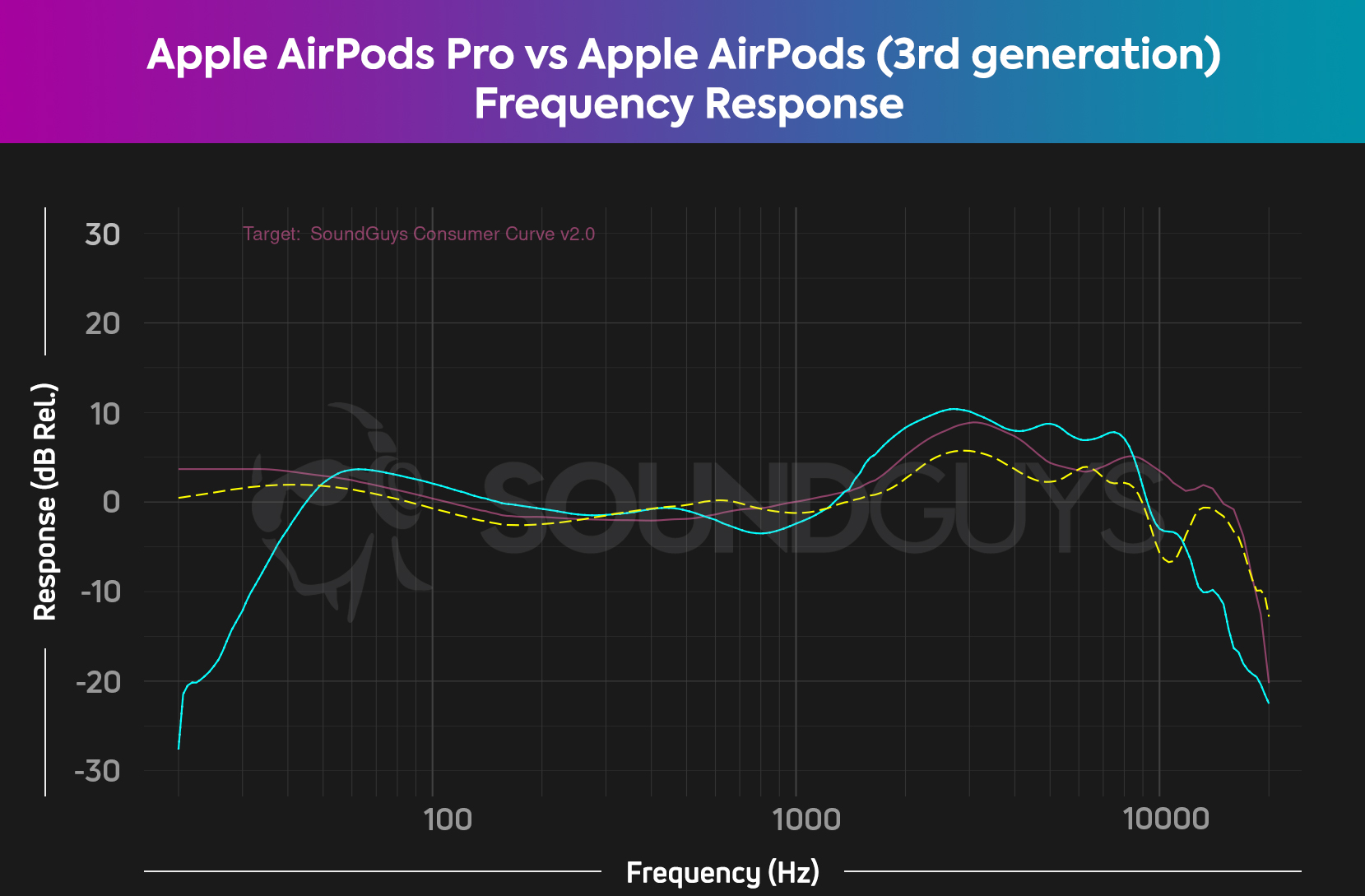
Compared to our target curve, the AirPods Pro outputs very accurate audio pretty much across the frequency spectrum, albeit with slightly under-emphasized highs. In comparison, the bass range output of the Apple AirPods (3rd generation) looks pretty lackluster, but it could be a lot worse. With an unsealed ear, some level of bass leaking is guaranteed, but the fact that it’s largely contained to sounds in the sub-bass range is impressive. The bottom line is there just aren’t that many sounds under 50Hz in music, so you probably won’t notice the lack of emphasis very often, if ever.
However, both these measurements were taken in ideal conditions. While the isolation and ANC performance of the AirPods Pro will significantly reduce the effects of, say, leaving the house, the same can’t be said of the AirPods (3rd generation). As good as Apple’s newest earbuds may sound, as soon you’re walking down the sidewalk and a car horn goes off, all that goes out the window. The only thing that can help with auditory masking when your earbuds don’t seal the ear is turning up the volume, which you shouldn’t do — noise-induced hearing loss is easier to cause than you might think, and no song is worth that.
Does the Apple AirPods (3rd generation) microphone sound as good as the AirPods Pro?
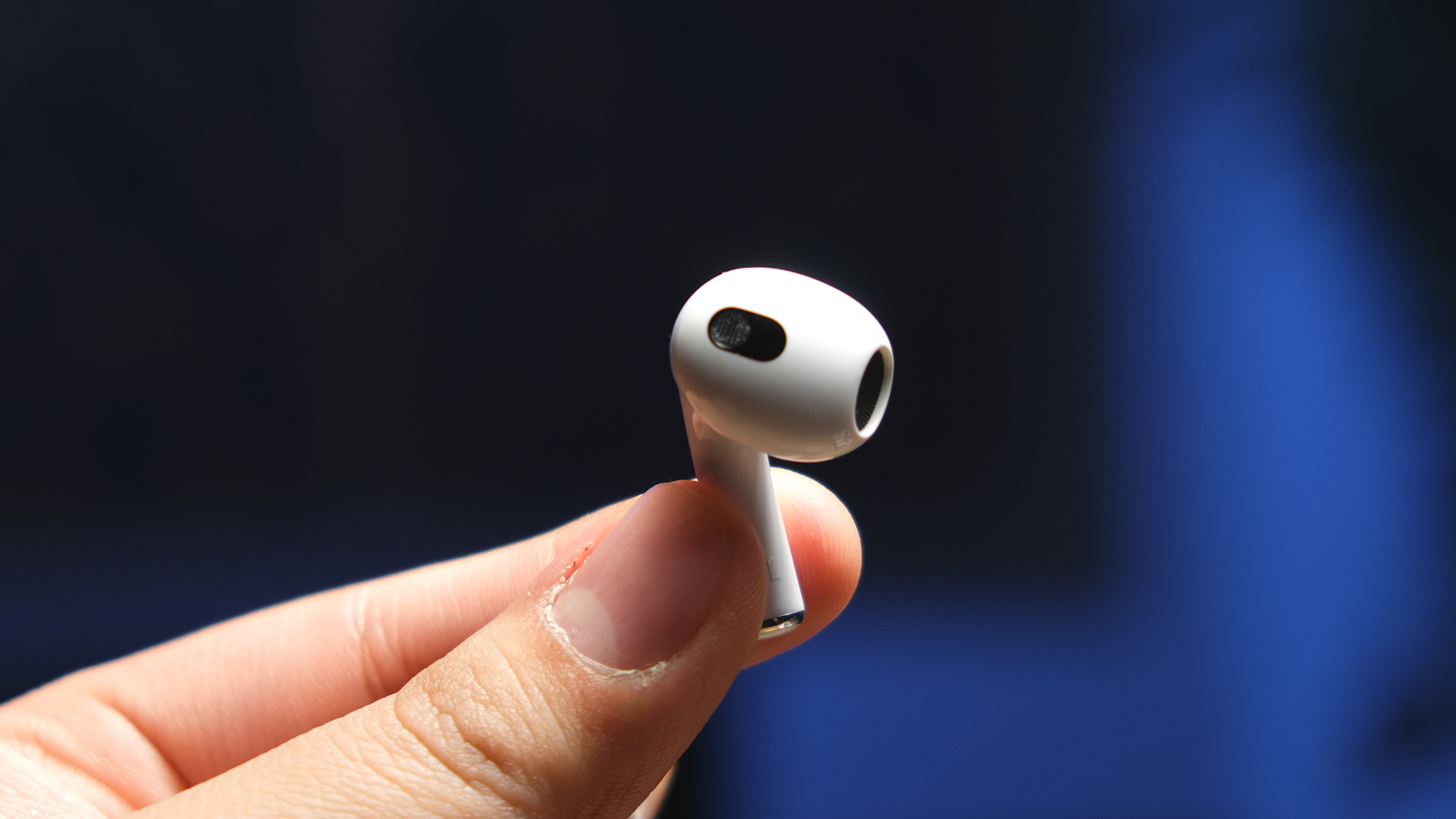
The Apple AirPods (3rd generation) microphone could sound great, depending on what device you use it with. If you’re connecting to an Apple device, you’re in for some of the best true wireless mic audio around. The same is true for the AirPods Pro, but the newer device is a clear step up. Listen for yourself:
Apple AirPods (3rd generation) microphone sample:
Apple AirPods Pro microphone sample:
which microphone sounds best to you?
Should you buy the Apple AirPods (3rd generation) or the Apple AirPods Pro?
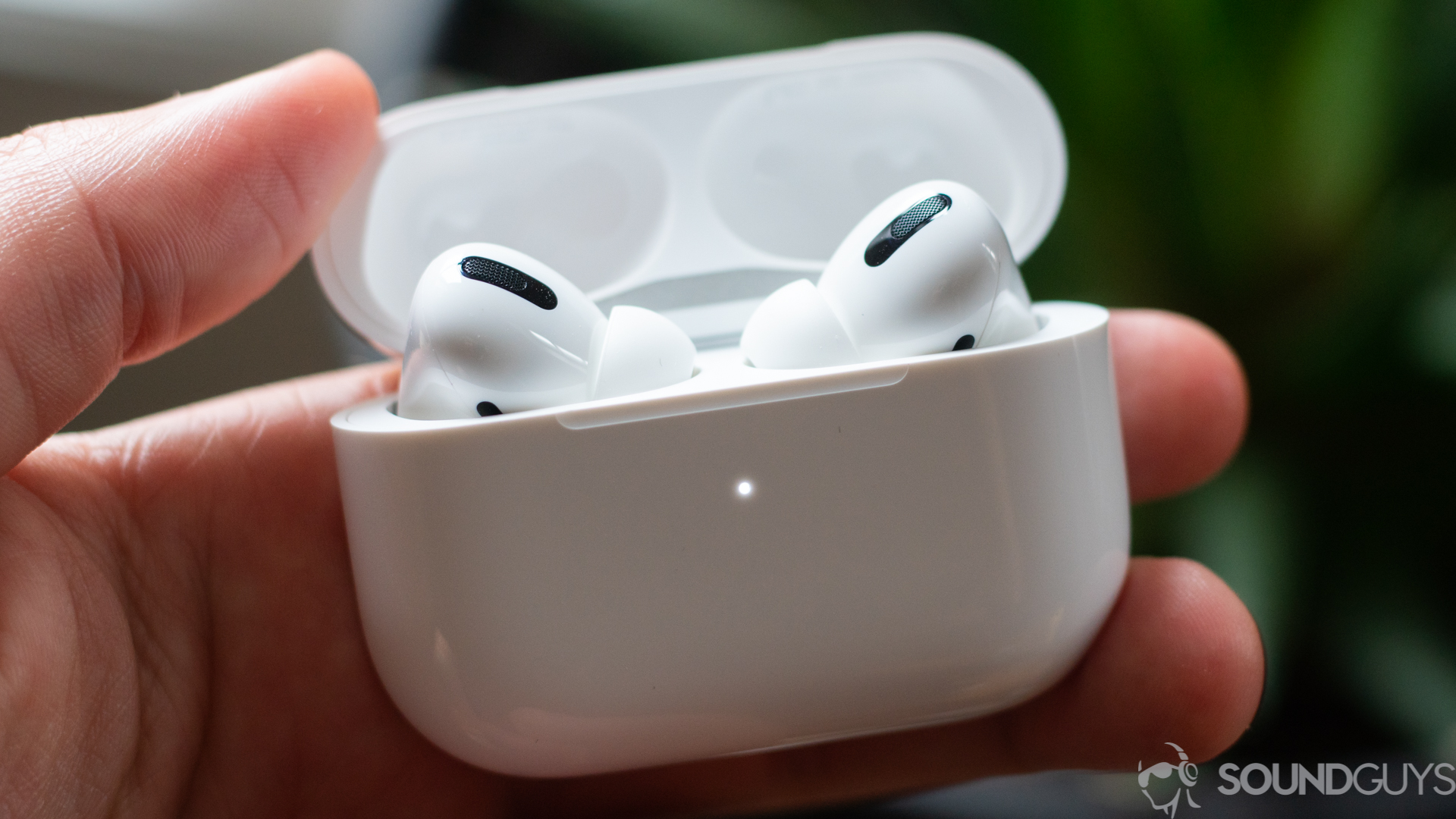
For the most part, it shouldn’t be all that complicated to figure out whether you should buy the Apple AirPods (3rd generation) or the Apple AirPods Pro. Do you like a secure fit and consistently clear audio? Buy the AirPods Pro. Sure, Apple’s ANC earbuds are about $70 USD more expensive, but that added expense saves you from a handful of headaches down the road.

The question of which to get for exercise is a little murkier. Both true wireless earbuds are IPX4-rated for sweat protection, and the noise canceling of the AirPods Pro makes it the easy choice if you don’t feel like listening to the Top 40 soundtrack of your local gym (especially if it’s punctuated by nearby grunters). However, if you’re a runner, the unsealed ear of the AirPods (3rd generation) may appeal — it really just depends on how secure a fit you can get. The hard plastic design doesn’t exactly leave any room for adjustment if it doesn’t immediately fit well, so getting the chance to try before you buy is worth it.

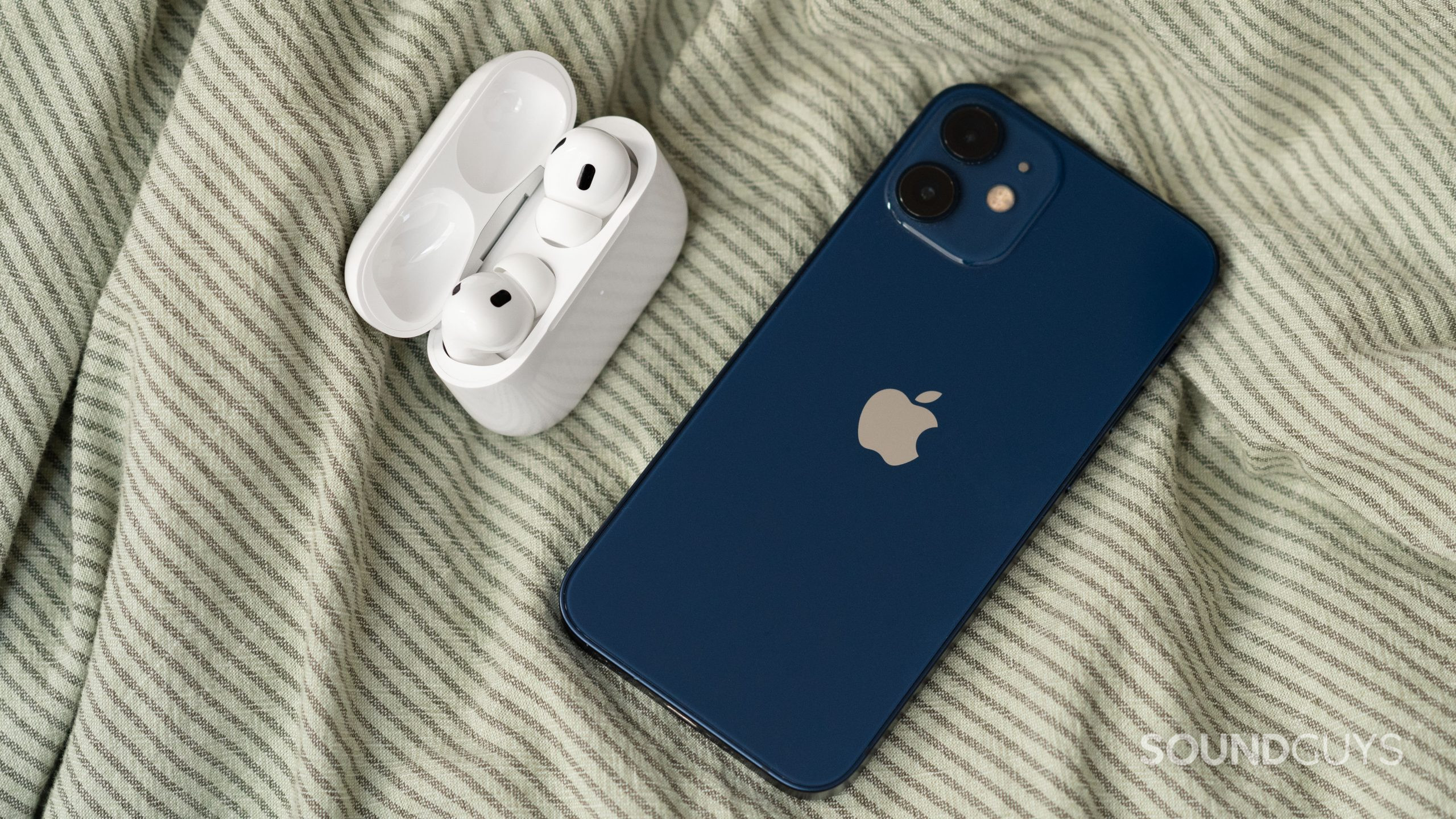
A new generation of AirPods Pro is out on the market now, and it compares even more favorably to the AirPods (3rd generation). The Apple AirPods Pro (2nd generation) features dramatically improved ANC to the first generation model, and its charging case features a new U1 chip, which will make it work with the Apple Find My app. The charging case is also IPX4 water-resistant to match the earbuds. It may not be a big enough update to justify upgrading from the 1st gen model, but otherwise, this is the product to get — especially compared to the AirPods (3rd generation).

What are some alternatives to the Apple AirPods?
If you’re turned off by the price of both Apple’s current true wireless earbud options, there are plenty of cheaper, worthwhile options. Probably most notable is Apple’s own Beats Studio Buds, which runs for $150, seals to the ear canal, and offers (admittedly so-so) ANC. It lacks the bells and whistles of a mainline Apple product, but it works pretty well on iOS and Android, which is nice.
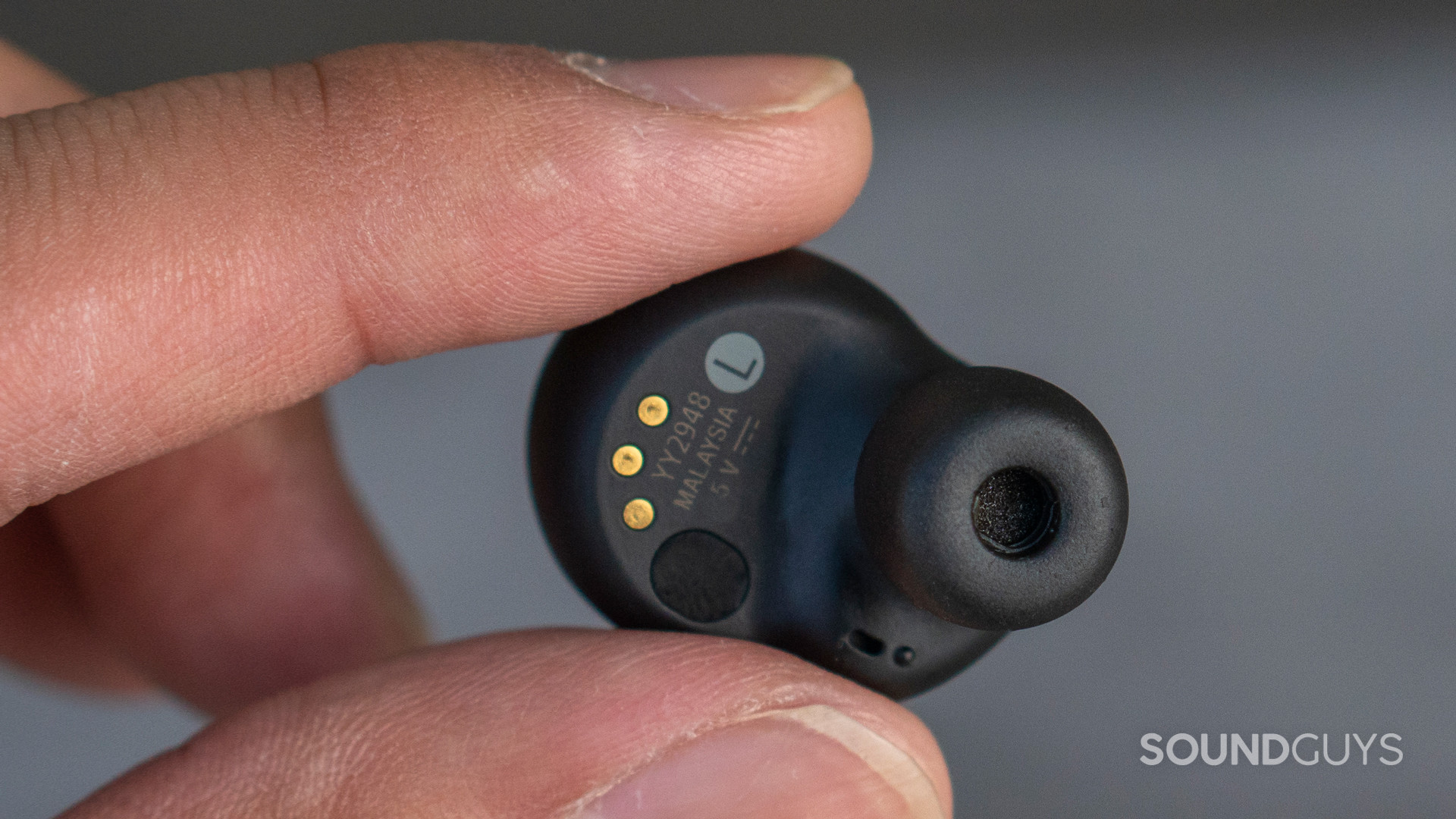
On that note, Android users should really be looking at other products — AirPods of any kind are always going to offer a sub-par experience because many of the features unique to AirPods are actually things that only come with iOS. People who don’t much care for ANC should look to something like the Sennheiser CX True Wireless, which runs for $129 and brings good sound, isolation, and battery life, as well as support for AAC and aptX audio codecs. If you’re on the hunt for something with ANC, the Sony WF-1000XM4 is the noise canceling true wireless earbuds par excellence, with best-in-class ANC, solid sound, and a ton of software features — you get it all but at an admittedly high price.
The Bose Sport Earbuds and Bose QuietComfort Earbuds are also excellent true wireless earbuds that include an app that’s equally compatible with iOS and Android devices. Both Bose headsets feature an IPX4 build, Active EQ technology, and a comfortable fit despite the somewhat large housings. Bose is known for its comfortable headphones and earbuds, and the Sport and QC Earbuds don’t disappoint.
What should you do if you want your earbuds to last for years to come?
Also, if you consider yourself an environmentalist or even environmentally conscious, getting neither might be the right move. True wireless earbuds are, by design, products with an extremely short lifespan — don’t expect to get more than two years out of these. Given the long way we have to go before battery recycling is very effective, that all translates to a lot of fairly scarce resources going to waste regularly. It’s worth considering a pair of over-ear headphones that will last longer or, even better, wired headphones or earbuds.
Frequently asked questions
No, none of the Apple AirPods support Bluetooth multipoint. However, you can take advantage of automatic device switching between Apple hardware under the same iCloud account. This means when you’re listening to music on your iPhone and start playing a video on your MacBook, the AirPods (3rd generation) will stop playing from your phone and immediately switch to the laptop’s audio output.
No, AirPods Gen 3 and AirPods Pro are not the same. While both are true wireless earbuds from Apple, they have distinct differences in design, features, and performance. AirPods Pro comes with silicone ear tips for a more secure fit and enhanced noise isolation, including active noise canceling (ANC). In contrast, AirPods Gen 3 has a different, unsealed design without silicone tips or ANC, focusing more on comfort and a new speaker array for improved sound in an unsealed environment. Both models share some features like Spatial Audio and stem controls, but the Pro model’s additional features, like ANC and better noise isolation, set it apart.
The lower price of AirPods Gen 3 compared to the AirPods Pro can be attributed to the differences in their feature sets and target audiences. AirPods Gen 3, while offering improvements over their predecessor, lacks some of the premium features found in AirPods Pro, such as active noise canceling and silicone ear tips for better noise isolation. This makes them more affordable and appealing to users who prioritize comfort and Apple’s basic functionalities over the advanced features of the Pro model.